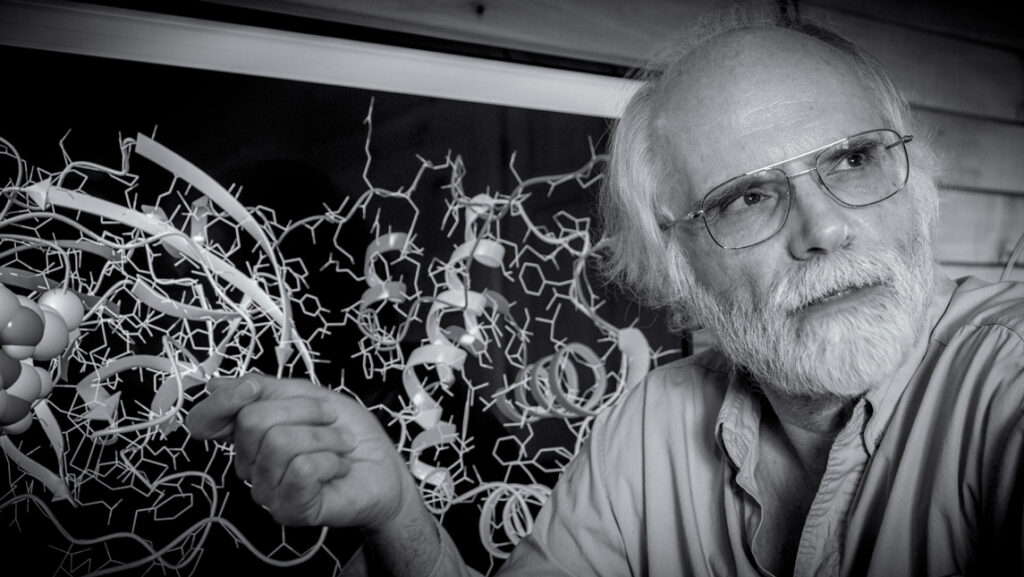
What does an international researcher who is working on understanding the link between COVID-19 and selenium do for his own personal health regimen during a pandemic?
UNC Greensboro’s Dr. Ethan W. Taylor wants you to know.
After his research was published earlier this year, and as a result of crafting many responses to requests about selenium supplements and recommendations on how to fend off viral infections after the above article and white paper were published, Taylor made the decision to draft up a summary about the regimen of dietary supplements that he and his family follow, with a detailed rationale on his thinking about how and why the particular choices he has made are important.

Taylor emphasizes that he is not a clinician, therefore cannot prescribe any treatment or make any recommendation for potential therapies. But he does share his personal approach to dietary supplements as a preventative to viral infection. This approach also aids in establishing what adjustments he or his family can make upon the event that one of them does test positive for the virus.
But Taylor notes that one cannot expect much help from any given therapy to work – pharmaceutical or otherwise – without a strong foundation of a plant-based, whole-foods diet rich in fruits, vegetables, nuts, and grains.
“Without the strong foundation of a healthy diet, it is folly to expect that any therapy, either pharmaceutical or nutraceutical, will be able to be maximally or even moderately effective in ameliorating the effects of an infectious disease like COVID-19,” he says.

“And it’s not just about calories, carbs, fats, and recommended daily allowances of essential vitamins and minerals. There are many chemical compounds that are found in fruits, vegetables, fungi – and especially in herbs and spices – that are critical to ensuring optimal health, and providing certain important nutrients.”
Taylor is vegan, and supplements his plant-based diet with vitamin B12 and omega fatty acids. Which vegetables does Taylor recommend? You might already be eating some of them: avocados, asparagus, red peppers, lentils and other legumes, edamame, cruciferous veggies, sunflower seeds, whole grains, garlic, and onions.
Taylor has identified four essential dietary supplements for his regime:
- High-potency multivitamin and minerals – Includes at least 300 mg of vitamin C. This helps safeguard against limited availability of vegetables, nutrient depletion, or minerals affected in water supply.
- Selenium – Based on his own research, this is the most important individual factor.
- Vitamin D3 – Likely decreases severity of COVID-19 if infected.
- Alpha lipoic acid (ALA) – a potent anti-oxidant, when combined with the foods mentioned above.
According to Taylor, other potentially useful supplements include green tea catechins, quercetin, L-Arginine, and Melatonin. The latter is most widely known as a sleep aid, but it also has antioxidant, anti-inflammatory, and immune-enhancing characteristics.
Taylor notes that his recommendations are not intended to be an exhaustive list, but rather are meant to be a simple list of supplements that he believes have the most fundamental role in limiting the severity of COVID-19.
“By targeting the mechanisms that are at the root of many pathogenic processes and symptoms, I think it is possible to achieve benefits with a limited number of compounds, and without megadosing on a large number of diverse dietary supplements,” Taylor says.
“I do not think the shotgun or ‘everything but the kitchen sink’ approach is necessary or as likely to be very helpful.”
You can follow the latest on Taylor’s selenium research on his Facebook page.
Taylor’s full white paper summary of his dietary regimen can be found here.
A list of his most recent research publications can be found here.
Story by Matthew Bryant, University Communications
Photography by Martin W. Kane, University Communications


